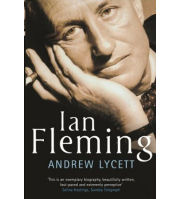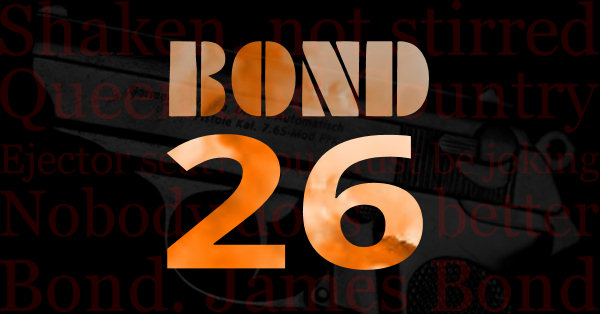 Following the poor reception of The Spy Who Loved Me, Fleming decided to visit Jamaica in July 1962, where he worked on the short story Octopussy. The story is set in Kitzbuhel and Jamaica, two places close to Fleming’s heart, and centres around a figure suffering the ill effects of a lifetime of smoking and drinking heavily who seems distinctly autobiographical.
Following the poor reception of The Spy Who Loved Me, Fleming decided to visit Jamaica in July 1962, where he worked on the short story Octopussy. The story is set in Kitzbuhel and Jamaica, two places close to Fleming’s heart, and centres around a figure suffering the ill effects of a lifetime of smoking and drinking heavily who seems distinctly autobiographical.
When he returned to London, Fleming was invited to a preview of Dr No by the director, Terrance Young. Despite his ambitions for seeing James Bond on the big screen it seems that he didn’t much enjoy the film, although he did enjoy his increased prosperity brought about by the films and treated himself to a Studebaker Avanti rather than the Thunderbirds he’d been driving until then.
While he worked to patch up his marriage with Ann, he was lacking energy and at the October premiere of Dr No he appeared unenthusiastic and rather distant. However, he did head to Tokyo in November to research his next book, where he met Dick Hughs – the Far East correspondent for the Sunday Times – and “Tiger” Saito, who became Dikko Henderson and Tiger Tanaka in You Only Live Twice. The three of them toured Japan, with Fleming making copious notes for his research.
January 1963 started off with the standard routine of two months in Jamaica where he would write his new book. Ann followed him out there with the knowledge that he lover, Hugh Gaitskill, was seriously ill and in fact he died within a few days of her arrival.
Despite his poor health, Fleming managed to visit Istanbul to see the filming to From Russia With Love and appeared on Desert Island Discs, but it was with much relief that On Her Majesty’s Secret Service was extremely well received after the disappointment of The Spy Who Loved Me and year earlier – by the end of April 60,000 copies had been published. The Flemings attended the premiere of From Russia With Love in October 1963 and threw a post-premiere party at their house in Victoria Square. However, Fleming looked lost according to those who attended.
Meanwhile, the Thunderball case with Kevin McClory was still unresolved and a court date finally set for November 20th. After a few days in court Fleming and Ivar Bryce were offered the chance to settle the case out of court, which they declined. However, after a week the hurriedly did settle with McClory, with Bryce paying costs and undisclosed damages, a decision he came to apparently due to the effect of the court case on Fleming’s health.
McClory was awarded all literary and film rights to the Thunderball screenplay and the film rights to the novel. Future copies of the book were also to include the acknowledgment that it was “based on a screen treatment by Kevin McClory, Jack Whittingham and the Author”.
A week after the case, Fleming was served a new writ, this time by Jack Whittingham. He was forced to withdraw from the original writ due to lack of funds and believed that he had still not received full credit.
By the time Fleming arrived in Jamaica in 1964 he was exhausted and although he sat down to write The Man With The Golden Gun, he reduced his working day to just 90 minutes. That year saw the publication of You Only Live Twice, but his health was so poor that he employed a nurse to look after him and once again he went to recuperate in Howe. However, during this time he sold 51% of Glidrose to Booker Brothers for £100,000 because he was paying supertax on its earnings and knowing that he had little time left to live, no doubt wanted to provide for Ann and Caspar.
On August 11th 1964 Fleming went to play golf followed by lunch at Royal St George’s and then in the evening he and Ann dined with a friend. Shortly after the meal Fleming collapsed but despite being rushed to hospital he died a few hours later in the early hours of August 12th and just a few weeks after his own mother.
The influence of Ian Fleming on popular culture has been enormous and it is remarkable that the character he created endures today, more than 50 years later. While much of this is thanks to the films, it is surely no accident that the films that are rated highest are those that remain most faithful to Ian Fleming’s books.
Read more about Ian Fleming











Leave a Reply.